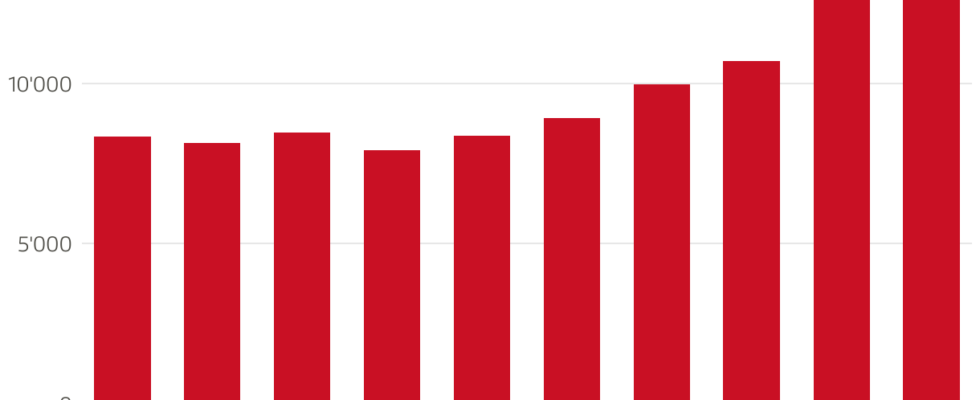Contents
The number of leasing contracts has been rising steadily for years. This form of consumption is becoming more and more accepted today, according to the business psychologist.
Currently, 45 percent of Swiss people have bought their car, as a survey by the online comparison service Comparis shows. At 51 percent, women are more willing to purchase their vehicle themselves, while men are clearly less willing at 40 percent.
The most popular form of external financing for a vehicle is leasing. In Switzerland, 170,376 new deals for the leasing of private cars were concluded in 2022, as figures from the Swiss Leasing Association (SLV) show. The number of leased private cars at the end of 2022 was around 522,000 – 2 percent more than in the previous year. The car leasing market has grown steadily in recent years.
Business psychologist Christian Fichter from the Kalaidos University of Applied Sciences sees the need for many people to be able to drive beautiful and powerful cars. Nowadays, external financing of consumption is more acceptable. “We used to have the feeling that you had to save first and only later could you afford something,” he says.
The car embodies the lifestyle
Fichter observes that the car is becoming more important, especially during leisure time. People want a Porsche for quick trips or a VW bus for camping. “A car is no longer just a tool, but also an expression of a lifestyle or status.”

Legend:
For many people, the car is also a status symbol.
Keystone/GAETAN BALLY
To put it bluntly, such fun cars naturally cost more than a simple small car for the commute to work. Here, leasing makes it possible to get your dream car, even if you don’t have the necessary assets. “If we have the options for action, we are very likely to resort to financing options such as leasing,” says the business psychologist.
When leasing, the consumer pays a monthly sum and can use the car under the agreed conditions. When the contract expires, the car must be returned.
Differences between language regions
There are also regional differences when it comes to external financing of cars: in German-speaking Switzerland, 49 percent finance their vehicle with external funds. In French-speaking Switzerland it is 66 percent and in Ticino it is even 79 percent.
“In general, Francophones are a little more emotional than German-speaking Swiss,” estimates business psychologist Fichter. “Social status is even more important there.” This is reflected in consumption, which means that people are more likely to buy a car that arouses emotions – i.e. a faster and therefore more expensive model.
